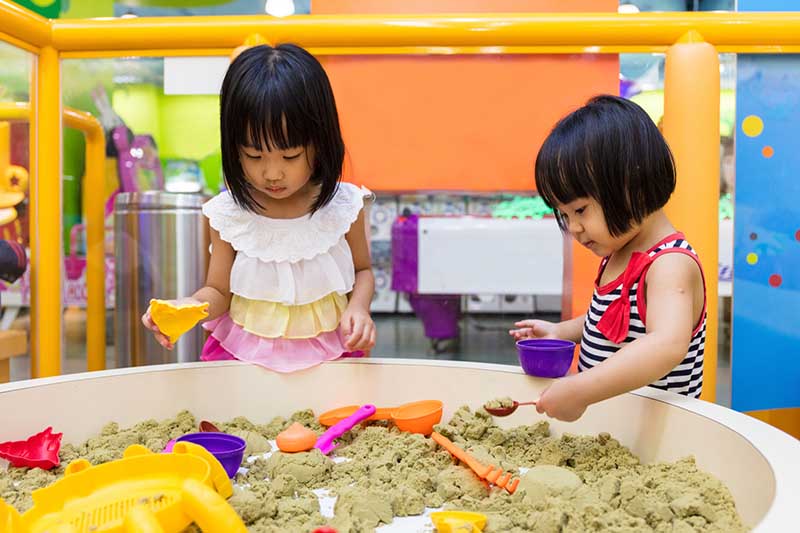Families For Life | Settling in Preschool: Practical Tips

Settling in at pre-school means a new routine for your child and you. It’s a good idea to get to know the pre-school’s guidelines about signing in, safety, food, sickness and so on. Dressing your child in comfortable, practical clothes (if there is no uniform) will help your child settle in at pre-school.
Pre-school checklist
Pre-schools have policies and routines to help things run smoothly, keep children safe and make sure children have enjoyable, stimulating experiences that support their early development.
Here’s an A-Z checklist of what you can expect at pre-school, which can help your child and you settle in.
Arriving at pre-school and going home
Most childcare centres may note your child’s name and arrival time in a record book when you drop your child off at pre-school. You may also need to sign to say that you’ve picked up your child and indicate at what time.
If someone else is picking up your child from pre-school, you may need to let the pre-school know, usually in writing.
Asthma and allergies
If your child has asthma, it’s important to let the pre-school know and give staff a copy of your child’s asthma plan.
If your child has allergies to food or other substances, the pre-school needs to know this too. If your child is at risk of anaphylaxis, make sure staff have access to your child’s adrenaline auto-injector (Epi-Pen) and know how to use it.
Clothes for pre-school
Most childcare centres and kindergartens have comfortable uniforms for children to move freely in. Closed-toe shoes also make it easier for your child to run and climb.
Educational programs
Your child’s pre-school’s educational philosophy will be outlined in its information booklet or website. Details of the educational program might be displayed in the building, and you can talk about it more with staff. You might also get a regular newsletter keeping you up to date with what the children are learning.
Fees
Fees and the way they’re collected will vary from pre-school to pre-school. It’s a good idea to ask about your pre-school’s policy ahead of time. If paying fees is a problem for you, let the pre-school know so it can link you with financial support schemes or arrange payment options.
Food
Most pre-schools provide meals, whereas others may ask you to pack lunches for your child, especially if your child has dietary restrictions.
Many pre-schools have policies to reduce the risk of children having allergic reactions to food – for example, ‘no food sharing’ policies. Or you might be asked not to send foods that contain the most common allergens. This information is usually in the pre-school’s information booklet or on its website.
Medication
Pre-schools must keep a formal written record of any medication your child needs while at pre-school. You’ll need to provide a medication authority form for this.
You’ll need to provide evidence of your child’s immunisation status for pre-school enrolment.
Parent participation
Being involved in your child’s pre-school helps you to understand more about what happens there. You can take part in pre-school activities in many ways – for example, joining excursions or getting involved with pre-school management.
Policies
Your pre-school will have policies on things like behaviour management, bullying, asthma, allergies and dispute resolution. All policies should be in the pre-school’s information booklet, on its website and/or on display in the pre-school.
Problems
Most of the time, things go smoothly at pre-school, but sometimes you might have concerns or issues. It’s a good idea to speak with the pre-school staff if any problems come up. Working things out quickly can prevent a small problem from turning into a bigger issue.
Safety rules
All pre-schools have safety rules. To keep your child safe, it’s important for you to get to know these rules and follow them. The rules will include:
people with permission to collect your child
out-of-bounds areas for children
traffic issues like parking and dropping/fetching children
emergency response drills.
Sickness
If your child is sick, it’s best to keep her at home where she’ll be more comfortable and won’t pass germs on to other children. If your child has an infectious illness – for example, whooping cough, hand, foot and mouth disease (HFMD) or chickenpox – it’s a good idea to let your pre-school know so the staff can tell other parents.
Head lice are a common issue for children at this age. If your child has head lice, it’s best to tell the pre-school and keep your child at home until you’ve got rid of the lice.
Sun safety
Your child may wish to take a broad-brim hat to preschool so she’s protected when she’s playing outside in the sun. It’s also a very good idea to get in the habit of putting a broad-spectrum SPF 30+ sunscreen on your child at home before pre-school.
Toilets
If your child is toilet-trained before starting pre-school, it’s helpful to dress her in clothes that make it easy for her to use the toilet – for example, pants with elastic waists. If your child has clothing with zips, buckles or buttons, you might want to help her practise opening and closing these at home. However, most pre-school uniforms are child-friendly. You can also pack a spare pair of underpants in case of accidents.
If your child isn’t using the toilet independently by the time pre-school starts, speak with the pre-school teacher.
Toys from home
Each pre-school has its own policy on whether children can bring toys from home. It’s best to check before your child packs her favourite teddy in her bag.
© raisingchildren.net.au, translated and adapted with permission
Explore more